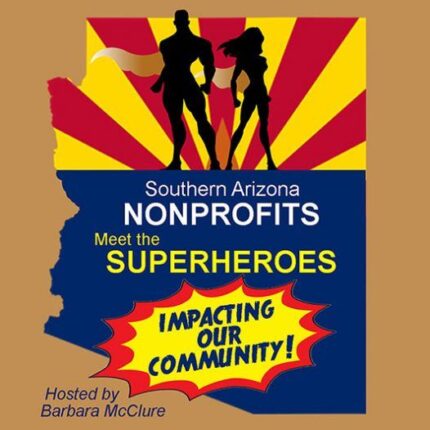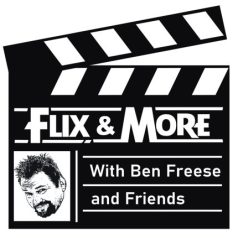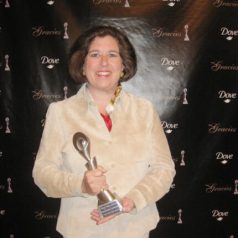ABOUT ~ Tony Figueroa
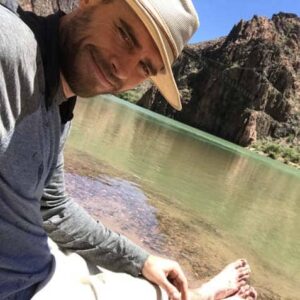 The Tucson Audubon Society created an Invasive plant program in December 2019. I was the founding member of the program and we started with a 3 person crew, called the Coatis, primarily working on Federal lands with the National Park Service and the Fish and Wildlife Service.
The Tucson Audubon Society created an Invasive plant program in December 2019. I was the founding member of the program and we started with a 3 person crew, called the Coatis, primarily working on Federal lands with the National Park Service and the Fish and Wildlife Service.
The goal was to break the model that had been implemented in the past and still is the norm for many public land management – Labor forces that are either seasonal employees or youth crews. This creates a need for continues trainings year after year for new employees of week after week for youth crews, that might have other distractions. We wanted to create a year-round permanent position that is able to work at different parks and refuges and provide the support that these locations need to accomplish their missions. We had some challenges with a global pandemic during our first year, but we continued to do great work and attract the attention of local government. We were getting requests for work in the Tucson region and realized that we need to create a group that is dedicated to addressing the invasive species spreading throughout the Tucson region, and not just on federal lands In August of 2020, we started to hire or Local Strike Team.
In 2020 we had a 3 person federal crew (Coatis) and a 4 person local crew (Local Strike Team), since then we have grown to 6 Coatis crew members, 12 Local Strike team members, 2 Project Managers, 2 interns and myself, from 3 to 23 in 3 years is an incredible accomplishment. We work with National Park Service, Fish and Wildlife Service, Forest Service, Pima County, City of Tucson, Tucson Water, Department of Forestry and Fire Management, The Nature Conservancy, Borderlands Restoration, HOAs and some private land.
There is a need for invasive plant species management worldwide and the Sonoran desert is no exception. The greatest threats for the native flora, fauna and residents of the region is the risk of wildfire. The Sonoran desert in its native state doesn’t have the vegetation density necessary to carry fire across the landscape. But with the introduction of non-native grasses, primarily from Africa, the “empty” areas of the desert are being filled in with buffelgrass and other non-native species. Buffelgrass wildfire burn in excess of 1300 degrees Fahrenheit.
These fires will kill of 100-year old saguaros, which are used by 15 different bird species and nearly 100 animals/insects. If we lose large stands of saguaro forests due to fire it will be nearly 150-yr before those individual are able to be replaced by the next generation, in a best case scenario.
So this is where our organizational mission of protecting and conserving bird species comes into focus. If we stand by and do nothing while we watch the invasive species spread, it will only be a matter of time before we start to lose our iconic saguaro forest and sonoran desert plant communities. If the birds we love to watch no longer have a place to call home in our region, they won’t have a reason to return. This means they might fly elsewhere to find suitable habitat or worst they don’t find that habitat and they perish.
Our Invasive plant program has 23 full-time employees and 2 interns. We have trained our employees in plant identification because we believe that it is essential to protect the native species while we eliminate the non-native species. We take a different approach than many other landscape type organizations, we want to preserve the good species and allow them to reestablish themselves in the area, after the non-native species have been treated. Our staff is Certified through the AZ Department of Agriculture as Pesticide Applicators. Most of the work that we do is spot spraying non-native grasses with herbicide, or manual removing the plant from the soils. Beyond grass treatments, we also have a Certified Arborist on staff and we use chainsaws to cut down non-native tree species that are choking out our native trees, like cottonwoods, and sucking up our precious water resources. After we cut down the trees we treat the stumps with herbicide to ensure that the tree won’t sprout back to life.
We are a non-profit organization and though we have had plenty of success over the last few years, we couldn’t do it without the generous support from our donors. If you want to support the protection the wildlands of south eastern Arizona please consider making a donation the the Tucson Audubon’s – Invasive plant program. It’s a herculean effort and it takes a community, thank you for your support.
Company Name: Tucson Audubon Society
Company Phone: (520) 629-0510
Personal Phone: (520) 245-3508
Email: tfigueroa@tucsonaudubon.org
Company / Organization Website URL: https://tucsonaudubon.org/
Company / Org Facebook Page URL: https://www.facebook.com/tucsonaudubon/
Other? Any special notes? https://www.instagram.com/tucsonaudubon/?hl=en

ABOUT ~ Carlos Aragon
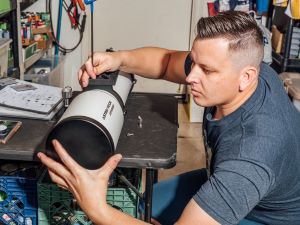 Carlos was raised in Vacaville California until HS, then moved to Bonners fairy Idaho. He grew up in the LDS church until he joined the military at age 20. He was active duty for 7 years until a severe injury retired him from being a Combat Talon 2 and Combat Shadow C-130 crew chief.
Carlos was raised in Vacaville California until HS, then moved to Bonners fairy Idaho. He grew up in the LDS church until he joined the military at age 20. He was active duty for 7 years until a severe injury retired him from being a Combat Talon 2 and Combat Shadow C-130 crew chief.
He is married to his RFTS partner, Kira and they have 3 boys.
Carlos is a self-made leader. After active duty, he worked at Zen Institute, was the Program Manager, then sat on the board at a Shays Veterans Ranch. However, after his military time Carlos experienced homelessness due to many trials. He has overcome many obstacles and is now the proud CEO of Reach for The Stars, non-profit where he brings joy and hope to 1,000s. Carlos is the co-founder and CEO of an innovative and popular mission, where Astronomy exploration heals minds. Reach For The Stars found that 2 things are happening. ONE, Space is popular!! and the scientific effects of exploring it provides our mental health lasting positive benefits. And Two, our community is struggling with anxiety, depression and suicide at an alarming rate. Carlos took these two…. A desire and a need, and combined them as a powerful tool to improve social-emotional wellbeing and the success of our communities. We now have our growing mission,
Reach For The Stars.
COMPANY PHONE: (520) 975-8041
PERSONAL PHONE: (520) 975-8041
EMAIL: rftstarsorg@gmail.com
COMPANY / ORGANIZATION WEBSITE URL: https://www.rftstars.com/
COMPANY / ORG FACEBOOK PAGE URL: https://www.facebook.com/rftstarsorg
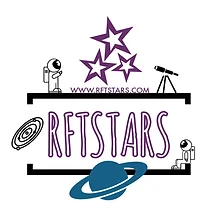
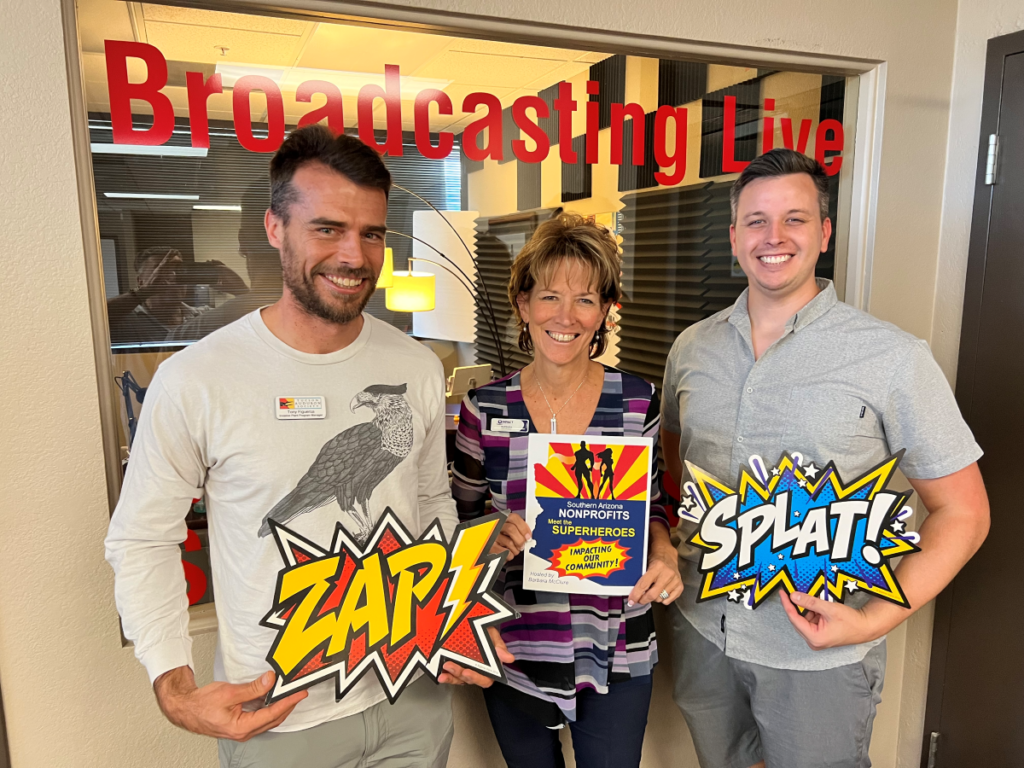
Barbara McClure, Executive Director 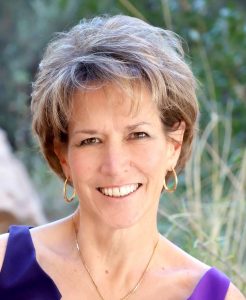 IMPACT of Southern Arizona
IMPACT of Southern Arizona
3535 E Hawser Street
Tucson, AZ 85739
Phone: 520-825-0009
barbara@impactsoaz.org
www.impactsoaz.org
SOCIAL MEDIA: Facebook | Instagram | LinkedIn | Twitter |
Barbara McClure wakes up each morning passionate about going to work at a place that improves lives and inspires futures every day! She has been the Executive Director of a Tucson social service nonprofit called IMPACT of Southern Arizona, for ten years. What is it that keeps you passionate about your role Barbara?
Barbara has been a visionary and planner with decades of experience as a small business owner and in nonprofit leadership; her innovative ideas and strategic thinking, along with a talent for bringing the community together, has helped grow IMPACT five-fold in a very short time. Her talents and interests are diverse but all center around helping people, improving the community, bolstering education, building capacity and sustainability, being vocal about the rights and conditions of others, experiencing art, nurturing all inhabitants of your garden, and enjoying life to the fullest.
And now Barbara is about to experience another exciting chapter in her life with hosting a brand-new Radio Show Podcast here on the Tucson Business RadioX Network starting in November.
IMPACT of Southern Arizona is a 20 – year old social service nonprofit stabilizing families and seniors, and moving people out of poverty. IMPACT’s programs are designed to stretch household budgets so earned income can be spent on necessities such as improved housing conditions, fuel to get to work, utilizes, and needed medical attention and prescriptions. Its clients are your neighbors! People come to IMPACT because it is a welcoming place where they are always treated with dignity and respect, and where they find resources, referrals, coaching, and help to attain the skills that can move them forward into self-sufficiency.
Barbara grew up in Pasadena CA, moved to Long Beach for college, got married and started our family then moved to Seattle area ten years later. Took our youngest son on an 11-month motorhome trip to get to Tucson – Homeschooled for 10th grade.
We vacationed at a rustic cabin when I was growing up, where we had no phone or television; and spent all our time outside fishing, hiking, horseback riding, listening to old radio shows, playing pool, reading comic books from the local small grocer, and using our imaginations all day long. I always admired the superheroes who defended people and cities like Gotham and Metropolis, so when our three boys were born, we named them after familiar character: Colin (Bryce for an overlay of Bruce Wayne, Kent, and Parker. Our first grandchild was born last year, and as in the family tradition, named Logan, after the Wolverine. I used to always tell them they were my superheroes – and they still are today!
Barbara loves working with numbers and has always loved math and the organization of things, so accounting seemed perfect, but I soon realized that I if I became a CPA I would have to spend many months inside doing tax returns, and that did not appeal to me as a long–term career! I have a great imagination and enjoy creating things, so thought I should find a better path that might nurture that side of my personality. I was working in the shipping industry in SoCal at the time and fell in love with import and export, so shifted my majors to Marketing and International Business. Those were wonderful fits, and I imagined graduating and moving to the largest port on the planet, in Germany; then, I met my future husband and things took a different turn.
A little bit about how Barbara got into Nonprofit work:
All along with my husband and I were always involved in nonprofits and community volunteer opportunities, and often said it was too bad we could not make a living doing those things we loved so much. Leadership roles in PTO, Boy Scouts, Historical Societies, Junior League, Elks, Rotary and more. Then when we moved to Tucson I looked for a local opportunity to impact my community. A Board position was about to open at IMPACT, and my local bank branch manager, Peggy Smoot, suggested I would be very passionate about getting involved in the mission work there. I worked in the Food Bank.
There are thousands of nonprofits in Tucson. What makes IMPACT Unique is that they bring the community together to stabilize families and move people out of poverty. Our true success lies in partnering with a large number of businesses, agencies, social clubs and other nonprofits. We invest $2.5 million in the community each year, and we do it all with a lean staff of amazing professionals supported by more than 170 volunteer shifts each week! We have put great systems in place to run efficiently, effectively and with a commitment to sustainability and integrity, protecting the community’s investment in our work, striving for perfect audits, being innovative, building capacity and most importantly – treating everyone with dignity and respect. We are an award-winning nonprofit with numerous nods to incredible customer service. Our clients are your neighbors… We improve lives and inspire futures of people living in Southern AZ.
So, IMPACT is celebrating its 20th anniversary this year, and you have been at the helm half that time. Share with me the things IMPACT has accomplished over the years, and the things you have planned for this celebratory year.

